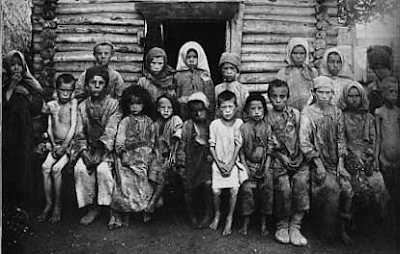Anthology Texts:
- Boris Pasternak: from Doctor Zhivago (1957)
- Olga Ivinskaya: from A Captive of Time (1978)
- Aleksandr Solzhenitsyn: "An Incident at Krechetovka Station," from We Never Make Mistakes (1963)
History of the Ban:
After the death of Stalin during the Khrushchev period when the Kremlin eased its censorship policy in 1953, Pasternak began writing Doctor Zhivago. He had been silent during the Stalinist period, which had "muted creative individualism and exacted conformity to party dictates from all writers," Upon submitting it to the State Publishing House and receiving a positive reaction, the author sent a copy to Giangiacomo Feltrinelli Editore, a publisher in Italy. Subsequently, the State Publishing House had second thoughts and condemned the book; its "cumulative effect casts doubt on the validity of the Bolshevik Revolution which it depicts as if it were the great crime in Russian history," Pasternak was required to request the book's return from the Italian publisher for "revisions," The publisher refused.
When Boris Pasternak was awarded the Nobel Prize for literature in 1958, he was forced to refuse the award: "[I]n view of the meaning given to this honor in the community in which I belong, I should abstain from the undeserved prize that has been awarded me."
The Soviet Union denounced the award - and the Swedish judges - as a "hostile political act for recognizing a work withheld from Russian readers which was counter-revolutionary and slanderous.” Further, Pasternak was expelled from the Soviet Union of Authors and deprived of the title “Soviet writer.”
In 1986, reflecting the Gorbachev open policies, issues of censorship and bureaucratic interference in literature were debate at the Eighth Soviet Congress of Writers. A reform-oriented slate was elected to the leadership position of the Writers' Union. Its chief announced that the state publishing agency was considering the publication of Doctor Zhivago. It was at last published in 1988.– Nicholas J. Karolides, Margaret Bald & Dawn B. Sova, 100 Banned Books: Censorship Histories of World Literature (New York: Checkmark Books, 1999): 42-43.
Detail:
The Coastline Measurement Problem
I like to observe to apprentice fiction writers that the coastline problem applies to every story; in fact, it applies to every narrated action within every story. How long does it take Irma to answer the telephone, once she hears it ring? In real life, anywhere from a few seconds up to maybe half a minute, if the caller persists and the answering machine doesn’t intervene; in narrated life, however, whether factual or fictional, the answer depends on the author’s verbal/narrative waypoints. It may take no longer than the space between the word dingaling and the word “Hello?” Or it may take eight wordsworth of space and time: Irma picked up the telephone and said “Hello?” Or it may be that Irma hesitates and reflects a bit on who might be calling; or she may hesitate and reflect a lot – her narrative, anyhow, may do so. Irma may set down her glass of chablis (what brand of chablis? What sort of glass?); she may tap the ash from her cigarette (What brand of cigarette? Tap the ash into what?), reflecting that she would probably be a non-drinker/non-smoker these days if it weren’t that her estranged abstemious party-pooping husband, Fred, always used to nag her so on that subject, and wondering whether that’s Fred calling now, or Fred’s lawyer, or maybe her own lawyer, Rodriguez, whose interest in her own case she’s half afraid is becoming more than merely professional. … Irma’s author may even freeze-frame between ring and response and cut to an extended flashback, perhaps several chaptersworth of retrospective marital case history. Indeed, an entire novel may elapse with Fred (or Rodriquez) on hold so to speak; Laurence Sterne’s account of the biological conception of Tristram Shandy nicely illustrates the coastline measurement problem in its narrative aspect. Likewise these remarks …– John Barth, "Ad Lib Libraries and the Coastline Measurement Problem," in Further Fridays: Essays, Lectures and Other Nonfiction, 1984-1994 (Boston: Little, Brown & Co., 1995): 241-42.
We'll begin with the book report on Doctor Zhivago, then move on to do the class exercise in pairs or small groups.
Exercise 8:
Who is Lara?
[Olga Ivinskaya: A Captive of Time (1978)]
Who is Silvia? what is she,
That all our swains commend her?
- Shakespeare, "As You Like It"
Bring a picture with you to class of the actress who best embodies Lara for you.
Using the extracts both from Pasternak's text and Olga Ivinskaya's memoir A Captive of Time: My Years with Pasternak (1978) provided in the anthology, we'll see if we can come up with a definitive answer to that perennial question: Who is Lara?
Next week:
Group 3: Book report on Naked Lunch due.






No comments:
Post a Comment